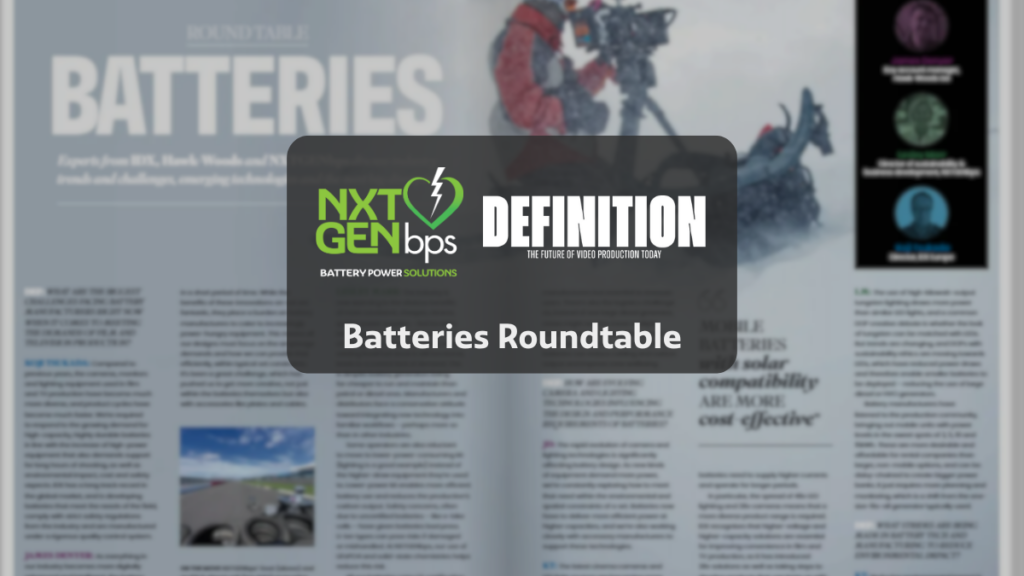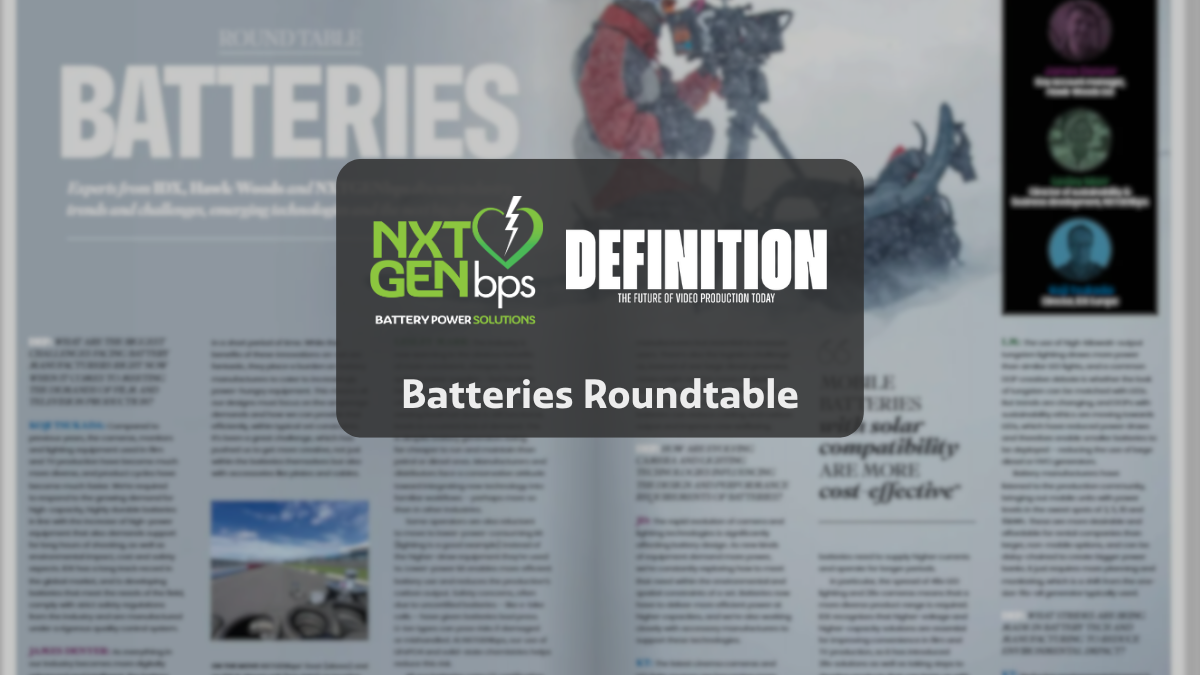Definition Magazine Roundtable: Batteries
Definition Magazine Roundtable: Batteries

NXTGENbps featured in Definition Magazine’s recent roundtable, where industry leaders explored the evolving landscape of battery technology in film and TV production. Our Director of Sustainability and Business Development, Lesley Marr, joined other experts to address key challenges and future trends.
Lesley highlighted how outdated workflows and reliance on legacy diesel equipment are slowing the industry’s transition to greener, more cost-efficient power. She also addressed the shift towards lower-draw lighting, the need for certified, weatherproof battery systems, and the importance of smart features like remote monitoring to improve planning and safety on set.
One standout from the discussion was our Swift battery – the world’s first flight-safe NMC solid-state unit.
Read the full article in Definition Magazine here.










